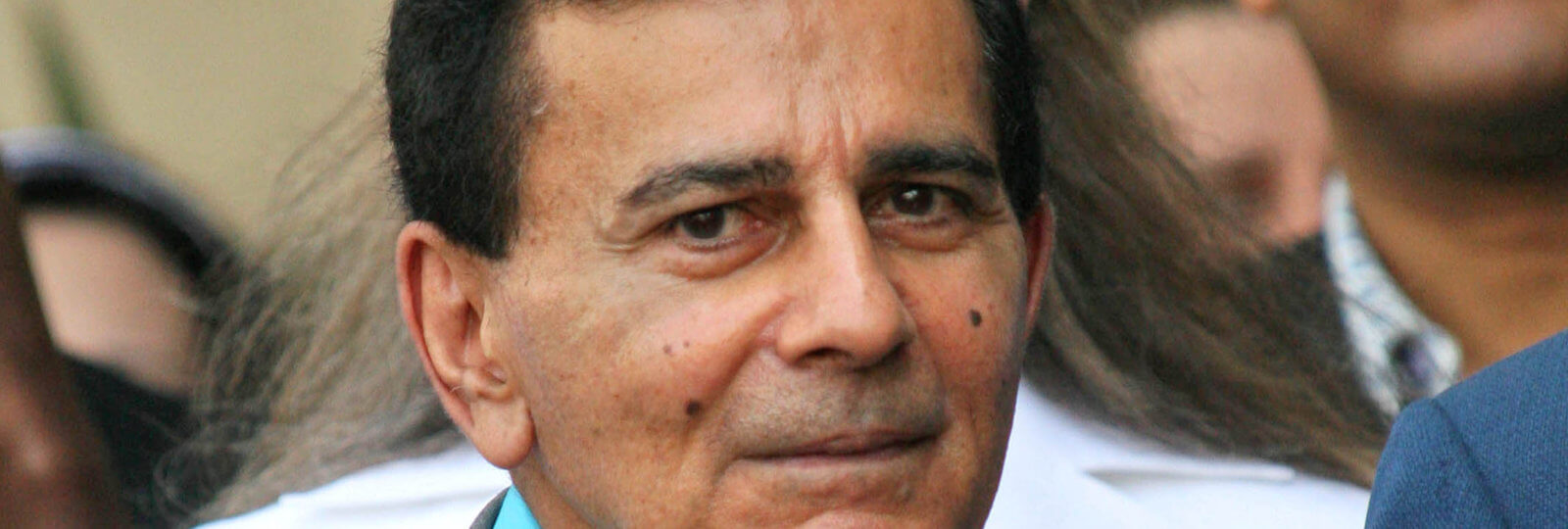

death
Casey Kasem Didn’t Have to Die Like That
One of the late iconic DJ's colleagues laments his passing, and recalls caring for her own ailing mother during her final days.
This article was made possible because of the generous support of DAME members. We urgently need your help to keep publishing. Will you contribute just $5 a month to support our journalism?
A vitriolic family feud swirling around radio legend Casey Kasem’s final days has angered many in the radio industry as well as his legions of fans. It’s been awful to watch someone go through an end-of-life drama but especially a man who had so much class. He wouldn’t even say “I Want Your Sex” on his nationally syndicated weekly show “American Top 40” and instead introduced it as “George Michael’s latest.” True, he was also known for his swearing off-air over a dead dog dedication that the “American Top 40” writers wanted him to read. But his public persona was impeccable.
I had the honor of presenting a tuxedo-clad Casey Kasem with the first Billboard Monitor Alison Steele Lifetime Achievement Radio Award in 1997. A moment that should have been respectful and dignified was marred by a half-naked overweight man charging the stage and screaming that his show was better than Howard Stern’s. A woman in a teeny bikini representing Mr. Stern then flashed her breasts to the rowdy audience. Casey Kasem, a radio veteran, took it in stride. But that was nothing compared to what has played out around the man’s decline from Lewy body disease since his diagnosis last fall.
Kasem’s three children from his first marriage claimed his second wife of over 30 years, Jean Kasem, wouldn’t let them see him. Mrs. Kasem claimed they wanted control of his estimated $80 million estate and that one of the daughters was being manipulated by the Church of Scientology. Papers were filed, judges weighed in, and it grew ugly—fast. One of the daughters was accused of working in the porn industry—a charge she denies.
I cared for my mother in her final years, which I later documented in a memoir, but the story of our family was the opposite of Mr. Kasem’s. My hoarding, doll-collecting mother and I were estranged since my parents’ divorce when I was 14. My born-again brother and I weren’t close either. In a moment of what I thought was insanity, I moved from New York City to the Bible Belt where my brother lived and moved “Mama Jo” and her collection of 700-plus dolls in with me.
We all fell madly in love.
Losing her three years later was excruciating and still hurts. However, to have been able to reconcile with her, forgive her and myself for the past, and let her have one of the most peaceful passings a human can have, changed me in many positive ways. I had no idea how much I needed to reconnect with her and my brother.
I caution those going through such a situation that the person in decline isn’t the only one regressing to childhood. These situations can bring out the best or worst in all involved. And an estate of any value often intensifies the worst. Where there’s a will there’s a war. I consider myself lucky that Mama Jo was not rich. The emotions that roil around someone dying are also about more than money. It’s about the validation survivors need that they were loved and important that’s as primal as mother’s milk.
And “anticipatory grief” is often more intense than the actual loss. The dread. The fear. The helplessness. In my experiences of it—and I’ve now been through this a couple of times—I find it interesting how when a person dies the energy completely shifts. There’s a sense of relief. The deceased is at peace and those who are still alive can stop worrying. Whatever negativity may have been there either dissipates or greatly lessens. I hope that happens with the Kasems but they can’t take back what went down.
What would have happened had Mr. Kasem granted his wife the power to make life-support decisions instead of his children? Is this a good idea in general? There’s no one-size-fits-all answer. To hand those decisions over to anyone requires enormous trust and is a huge responsibility for the person taking it on. Often a loved one will prolong the life of someone simply because they’re not ready inside themselves to let go. They’re convinced this isn’t really “it.” The person in decline surely has longer to live. If that person living or dying affects the income of the decision makers it can also seriously cloud their thinking.
Clearly, the Casey Kasem situation had many layers to it. Unfortunately, it reminds me of that awards ceremony in 1997: an indignant turn of events to someone who deserved better. When faced with a crisis like this, taking the high road and placing civility over rivalry will rarely be regretted.
Before you go, we hope you’ll consider supporting DAME’s journalism.
Today, just tiny number of corporations and billionaire owners are in control the news we watch and read. That influence shapes our culture and our understanding of the world. But at DAME, we serve as a counterbalance by doing things differently. We’re reader funded, which means our only agenda is to serve our readers. No both sides, no false equivalencies, no billionaire interests. Just our mission to publish the information and reporting that help you navigate the most complex issues we face.
But to keep publishing, stay independent and paywall free for all, we urgently need more support. During our Spring Membership drive, we hope you’ll join the community helping to build a more equitable media landscape with a monthly membership of just $5.00 per month or one-time gift in any amount.



















































































